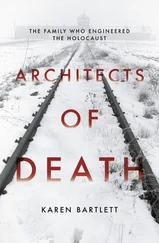C. Harris - Who Buries the Dead
Здесь есть возможность читать онлайн «C. Harris - Who Buries the Dead» весь текст электронной книги совершенно бесплатно (целиком полную версию без сокращений). В некоторых случаях можно слушать аудио, скачать через торрент в формате fb2 и присутствует краткое содержание. Год выпуска: 2015, Издательство: Penguin Publishing Group, Жанр: Исторический детектив, на английском языке. Описание произведения, (предисловие) а так же отзывы посетителей доступны на портале библиотеки ЛибКат.
- Название:Who Buries the Dead
- Автор:
- Издательство:Penguin Publishing Group
- Жанр:
- Год:2015
- ISBN:нет данных
- Рейтинг книги:4 / 5. Голосов: 1
-
Избранное:Добавить в избранное
- Отзывы:
-
Ваша оценка:
- 80
- 1
- 2
- 3
- 4
- 5
Who Buries the Dead: краткое содержание, описание и аннотация
Предлагаем к чтению аннотацию, описание, краткое содержание или предисловие (зависит от того, что написал сам автор книги «Who Buries the Dead»). Если вы не нашли необходимую информацию о книге — напишите в комментариях, мы постараемся отыскать её.
Who Buries the Dead — читать онлайн бесплатно полную книгу (весь текст) целиком
Ниже представлен текст книги, разбитый по страницам. Система сохранения места последней прочитанной страницы, позволяет с удобством читать онлайн бесплатно книгу «Who Buries the Dead», без необходимости каждый раз заново искать на чём Вы остановились. Поставьте закладку, и сможете в любой момент перейти на страницу, на которой закончили чтение.
Интервал:
Закладка:
“Not long. According to the barman, he fell into an argument with another gentleman in the taproom and stormed off shortly after ten. Fortunately, the gentleman in question is a regular patron of the establishment, so the barman was able to identify him as a banker by the name of Austen. Henry Austen.”
The name was unfamiliar to Sebastian. “What do you know of him?”
“I’ve had one of the lads looking into him. He’s the son of a Hampshire clergyman. Originally trained for the church himself, but joined the militia at the beginning of the war with France. Served a number of years, although he only saw action in Ireland. I gather he was involved in handling payroll and got caught up in the Duke of York scandal. That’s when he resigned his commission and went into banking. He’s done quite well for himself; his main bank is in Henrietta Street, here in the City, but he also has branches in various country towns such as Alton and Hythe.”
“What’s his connection with Preston?”
“That I don’t know. He seems a rather good-humored, even-tempered chap from all we’ve been able to discover. But I’ve kept the constables away from him so far-thought it might be better to let you have a go at him first.” The bells of the city’s churches began to toll, counting out the hour in a rolling cascade of sound as they drew up before the Bow Street Public Office. Lovejoy said, “There is one thing about Austen that may or may not be pertinent, but is nonetheless rather disturbing.”
“Oh?”
“His wife is the widow of a French count.”
“Please don’t tell me he lost his head as well?”
“I’m afraid so. He was guillotined in 1794. I gather she’s been ill for quite some time and may even be dying; Austen has his sister up from Hampshire to stay with them and help.”
“What do you know about her?”
“The sister? I gather she’s quite unremarkable. A spinster by the name of Jane. Miss Jane Austen.”
Sebastian went first to the Austen bank on Henrietta Street in Covent Garden, only to be told by a plump, supercilious clerk with heavily oiled, sandy hair that Mr. Austen was “currently unavailable.”
“Is he out, or simply not receiving?” asked Sebastian.
The clerk sniffed. “I’m afraid I really can’t say.” He started to turn away, a sheaf of papers in his hands.
“Can’t, or won’t?”
The icy menace in Sebastian’s voice brought the clerk to an abrupt halt, his chin sagging in a way that caused his mouth to gape open, his pale blue eyes widening as his gaze met Sebastian’s.
Sebastian said, “Consider your response very carefully.”
“He. . he is not in today. Truly. He was scheduled to visit one of our branches down in Hampshire this morning, and I–I can only assume he went.”
“Where does he live?”
The man swallowed hard enough to bob his Adam’s apple visibly up and down. “I don’t think I should answer that.”
Sebastian gave the young man a smile that showed his teeth. “Actually, I think you should.”
The papers the clerk had been holding slipped from his fingers to flutter to the floor. “Sloane Street. Number sixty-four Sloane Street.”
“The keeper o’ the Hyde Park Turnpike is gonna think we’re up to somethin’ ’avey-cavey,” said Tom as Sebastian turned his horses toward Hans Town for the third time that day.
“Very likely,” agreed Sebastian, guiding his pair around a slow collier’s wagon.
The Austen house lay halfway down Sloane Street, not far from Sloane Square and the narrow, haunted lane that led to Bloody Bridge. One of a long line of terraces built late in the previous century, it had neat, white-framed windows and a shiny front door and was in every respect what one might expect of a prosperous, up-and-coming banker.
The door was opened by a young and rather inexperienced housemaid who confirmed the bank clerk’s information, saying breathlessly, “I’m sorry, me lord, but the master left at the crack o’ dawn, he did.” When Sebastian then asked to see Mr. Austen’s sister instead, the girl grew so flustered she dropped the card he’d handed her.
She retrieved the card with a stammered apology and hurried away, only to return a moment later and escort him up to an elegant octagonal drawing room. The salon was expensively furnished in the latest style, with Egyptian-inspired settees covered in peach- and lime-striped silk, ornately carved gilt mirrors, and an exquisite collection of French porcelains. The only odd note came from a small, rather plain writing desk that rested on a round, inlaid rosewood table positioned before the windows so that it overlooked the garden. At Sebastian’s entrance, the woman seated beside it thrust whatever she’d been working on beneath the desk’s slanted lid so quickly that the corners of some of the pages were left protruding.
“Lord Devlin,” she said, rising from her chair to come forward and greet him.
Like the plain writing desk, Miss Jane Austen looked vaguely out of place in the room, both more comfortable and less ostentatious than her surroundings. Somewhere in her mid- to late thirties, she had an attractive, pixie face framed by short dark hair that curled from beneath a spinster’s crisp white cap. Her cheeks were abnormally ruddy, her dress neat but not particularly fashionable, her dark eyes calm and assessing in a way that told him this was a woman accustomed to observing and analyzing her fellow men.
“I’m sorry my brother isn’t here to meet with you,” she said, “but he left for Alton this morning and isn’t expected back until tomorrow evening.”
“I appreciate your taking the time to speak to me instead,” said Sebastian, settling in the chair she indicated. “I understand your brother was acquainted with Stanley Preston.”
She sank onto the edge of a nearby settee, her hands nestled together in her lap. “Yes. My sister-in-law was great friends with the late Mrs. Preston, you see.”
“She died in childbirth?”
“She did, yes. It was quite tragic. Their daughter, Anne, was only fifteen at the time. It’s a difficult age for a young girl to be without a mother, and my cousin has attempted in the years since to stand in her friend’s stead.”
“Your cousin?”
“I beg your pardon; I should have explained. My sister-in-law, Eliza, is also my cousin. Her mother and my father were sister and brother.”
Sebastian studied Miss Jane Austen’s small, expressive face. It was difficult to think of this quiet, provincial vicar’s daughter as someone whose first cousin had been married to a French count guillotined in the Revolution. He said, “You’ve met Mr. Preston yourself?”
“At various times over the years, yes.”
“What manner of man was he?”
“Mr. Preston?” She reached for a nearby embroidery frame, using the movement, he suspected, to give herself time to consider her response. “I would say his character was very much that of a devout and honest man. In truth, he had many admirable qualities. He was utterly devoted to his children and the memory of his dead wife. He was extraordinarily well-read on a number of subjects, particularly history. And he was responsible and moderate in most things-with one notable exception, of course.”
“You mean, his passion for collecting?”
Her eyes crinkled in quiet amusement. “Yes; that is what I was referring to.”
Sebastian found himself smiling. “Now that you’ve satisfied the proprieties by listing his admirable qualities, perhaps you could tell me some of his less admirable traits.”
She took up her needle. “We all have our imperfections and idiosyncrasies, Lord Devlin. But I hope I am neither so unjust as to fault a man for falling short of perfection, nor so uncharitable as to catalogue his minor failings after his death.”
Читать дальшеИнтервал:
Закладка:
Похожие книги на «Who Buries the Dead»
Представляем Вашему вниманию похожие книги на «Who Buries the Dead» списком для выбора. Мы отобрали схожую по названию и смыслу литературу в надежде предоставить читателям больше вариантов отыскать новые, интересные, ещё непрочитанные произведения.
Обсуждение, отзывы о книге «Who Buries the Dead» и просто собственные мнения читателей. Оставьте ваши комментарии, напишите, что Вы думаете о произведении, его смысле или главных героях. Укажите что конкретно понравилось, а что нет, и почему Вы так считаете.












